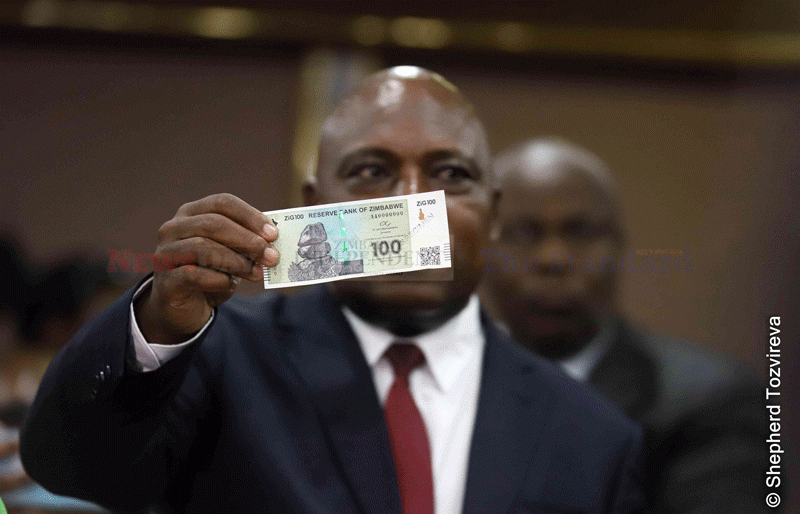
RESERVE Bank of Zimbabwe (RBZ) governor John Mushayavanhu expects that the expected 22% increase in the currency account surplus this year will liquify the market, amid a central bank-induced liquidity crunch.
The liquidity crunch is because of the RBZ and Treasury putting in place policies to limit money supply growth to the available foreign currency reserves to back the ZiG’s value.
However, these limits have dropped the money supply to below adequate market levels, leaving firms struggling to seek capital for their daily operations.
Consequently, foreign currency holders are increasingly holding onto their monies.
In the recent 2025 Monetary Policy Statement, Mushayavanhu said the current account surplus would rise to US$611,6 million, from US$501,2 million, owing to improved foreign currency inflows.
“The sustained inflow of foreign currency will enable the Reserve Bank to continue to liquefy the interbank market for foreign exchange to meet critical imports supported by bona fide foreign invoices,” Mushayavanhu said in a speech read on his behalf by the bank’s chief economist, Tongai Tarubona.
The speech was read at the two-day National Competitiveness Commission inaugural Competitiveness Summit held at the Zimbabwe International Trade Fair in Bulawayo this week.
“A strong external sector performance will support exchange rate and price stability, which are key tenets for enhancing competitiveness,” Mushayavanhu said.
- Rampaging inflation hits Old Mutual . . . giant slips to $9 billion loss after tax
- Monetary measures spur exchange rate stability: RBZ
- Zim deploys IMF windfall to horticulture
- Banker demands $21m from land developer
Keep Reading
He added that the central bank had managed to maintain three times cover for the ZiG, though this has been disputed by economists.
“Going forward, the Reserve Bank remains committed to backing ZiG reserve money with foreign assets throughout 2025 and beyond, which will entrench stability in prices and exchange rate,” Mushayavanhu said.
“Projected foreign reserve coverage of ZiG reserve money and deposits banking institutions continue to be well capitalised with core capital above the minimum regulatory capital requirement.”
The increase in the current account is expected from improved export proceeds, international remittances, loan proceeds, income receipts, and foreign investments.
The rise will be supported by several new RBZ measures.
These include raising the annual limit on prepaid debit and credit cards by 100% to US$1 million, increasing the export retention threshold by 5%, and removing limits on funds from the foreign exchange interbank market.
Additional measures include mandating that all informal businesses have bank accounts and are tax compliant, leveraging foreign reserves in anticipation of increased gold deliveries and promoting inter-bank market trading.
“Firming gold prices as well as increased foreign currency receipts from US$11 billion in 2023 to US$13,3 billion in 2024 and strong diaspora remittances inflows are expected to continue supporting the anticipated current account surplus in 2025,” Mushayavanhu said.










